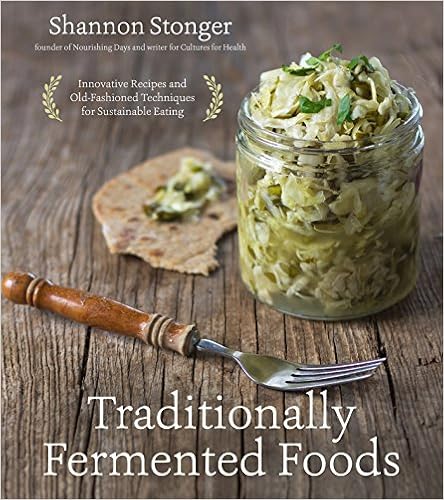 Summary
Summary
Harnessing traditions from previous generations to preserve food is not only a passion for Shannon Stonger, but a way of life. Shannon walked away from a career in chemistry to raise her family. Shortly thereafter, she and her husband moved their family off the grid to discover a more simple, agrarian life. With only minimal solar-powered electricity, Shannon relies on practical food preservation techniques, such as fermentation, to provide nutritious food for her family while cutting food costs.
In Traditionally Fermented Foods, Shannon shows readers how to preserve food using traditional fermentation techniques, often without refrigeration. An alternative to canning and freezing, traditionally fermented foods do not require modern technology to preserve. You can learn Shannon’s authentic preservation technique, which she depends on daily to put food on the table, so you know they work. You can also learn how fermented foods work, how to make fermented foods and how to use fermented foods in recipes. This book contains over 80 recipes with corresponding photos.
Where to get it?
Book Depository
Amazon.com
Related Videos
Related Threads
The Doable Off-Grid Homestead
Related Websites
Nourishing Days









